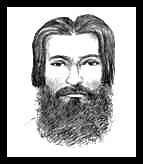The Haqqani trust
The Asia Times' Syed Saleem Shahzad reports that the Taliban supremos in North and South Waziristan recently held a meeting in Khost province in Afghanistan. The meeting was called and chaired by Siraj Haqqani, the son of Jalaluddin and military commander of the Haqqani Network. The article highlights the relationships between the various Taliban groups in Pakistan, and provides further evidence of Siraj's influence within Pakistani Taliban circles.
These leaders included Sirajuddin Haqqani, who commands the largest Taliban group; the newly appointed chief of the Tehrik-i-Taliban Pakistan, Hakimullah Mehsud; his rival Mullah Nazir, a Taliban commander from Pakistan's South Waziristan tribal area who commands the biggest Taliban fighting network in the neighboring Afghan province of Paktia; and Gul Bahadur, a Taliban commander in North Waziristan.Sources familiar with the meeting told Asia Times Online that it had been convened at the personal initiative of Sirajuddin Haqqani, whose emphasis was on immediate reconciliation between all Taliban factions - the Taliban are divided in the Pakistani tribal areas along tribal lines.
Although they all pledge allegiance to Taliban leader Mullah Omar and his resistance against foreign forces in Afghanistan, in their own constituencies they remain divided. For example, Mullah Nazir and Gul Bahadur are from the Wazir tribe and have always been at odds with Mehsud tribesmen. At times, they have supported the government's military operations against one another.
One of the main issues addressed at the meeting was the military operations in Pakistan, as these have devastated the Taliban's supply lines into Afghanistan. In past years, the Taliban have launched thousands of men annually across the border; this number has now been severely reduced.
The leaders agreed that all Taliban groups, whether they were rivals or not, would maintain close coordination and also develop joint operations when required. Such coordination among assorted armed groups has worked in Afghanistan, but this is the first time it has happened at a regional level.
Siraj is executing the will of the Afghan Taliban and al Qaeda, which has a vested interest in the following: keeping the feuding between the Wazirs and the Mehsuds to a minimum; presenting a unified front against the Pakistani government; maintaining the safe havens in Waziristan; maintaining pressure on NATO's supply lines; and keeping the pipeline of Taliban fighters and weapons flowing from Pakistan into Afghanistan.
I have one minor point of disagreement with Shahzad. The Wazirs and the Mehsud Taliban leaders banded together earlier this year to present a united front. Bahadar, Nazir, and Baitullah Mehsud created the Council of United Mujahideen. The Taliban leaders "united according to the wishes of Mujahideen leaders like Mullah Muhammad Omar and Sheikh Osama bin Laden," according to a pamphlet released by the group. The Taliban alliance said it openly supports Omar and bin Laden in their war against the US, Pakistan, and Afghanistan. The group vowed to pool resources to halt any military operation in the Waziristan region. Siraj Haqqani was also instrumental in uniting the three Taliban leaders.
The Council of United Mujahideen appears to have dissolved after Baitullah was killed in the Aug. 5 Predator strike in South Waziristan. Siraj is attempting to reconstitute the group, and Hakeemullah, as the leader of the Movement of the Taliban in Pakistan and a Mehsud clansman, is representing his tribe. The odds are good that Waliur Rehman Mehsud, the new leader of the Mehsud Taliban in South Waziristan, was also in attendance.

